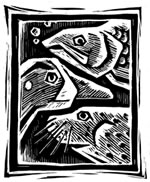- Home
- Restoration Projects
- Project Search
- Evaluating Injury to Harlequin Ducks (Histrionicus histrionicus) Caused by Sublethal Hydrocarbon Exposure in Prince William Sound Using Species-Specific Cell Lines 080839
Project Information
Title: Evaluating Injury to Harlequin Ducks (Histrionicus histrionicus) Caused by Sublethal Hydrocarbon Exposure in Prince William Sound Using Species-Specific Cell Lines 080839
Project Year and Number: 2008: 080839
Other Fiscal Years and Numbers for this Project: 2010: 10100839, 2009: 090839
Principal Investigator (PI): Tuula Hollmen (Alaska SeaLife Center)
Managing Agency: ADFG
Assisting Personnel: Kathrine Springman
Research Location: Prince William Sound, Alaska SeaLife Center (Seward)
Restoration Category: Research
Injured Resources Addressed: Harlequin Ducks
Abstract: Evaluation of harlequin duck (Histrionicus histrionicus) population trends, survival measures, and biomarker indicators of exposure suggests that the species is recovering, but has not fully recovered from the effects of the 1989 Exxon Valdez oil spill (EVOS) in the Prince William Sound (PWS). In areas oiled by the EVOS, elevated cytochrome P4501A biomarker induction has been observed in harlequin ducks as recently as March 2007, providing evidence of continued exposure. The magnitude of injury and its implications for populations of harlequin ducks caused by chronic oil exposure and long-term induction of central enzymatic processes is unknown. This study applies a panel of in vitro harlequin duck and surrogate cell line bioassays for a species-specific toxicological assessment of site-specific hydrocarbons from PWS. A combination of bioassays that measure direct effects on cell viability and DNA damage provide a new method to assess and quantify injury. Also, a battery of laboratory bioassays provides a method to link P4501A biomarker induction with other measures of cellular injury, and a comprehensive assessment of potential short and long-term toxicity.Proposal: View (343 KB)
Reports:
Annual Report FY08: View (49 KB)
Final Report: See Project 10100839
Publications from this Project: None Available
